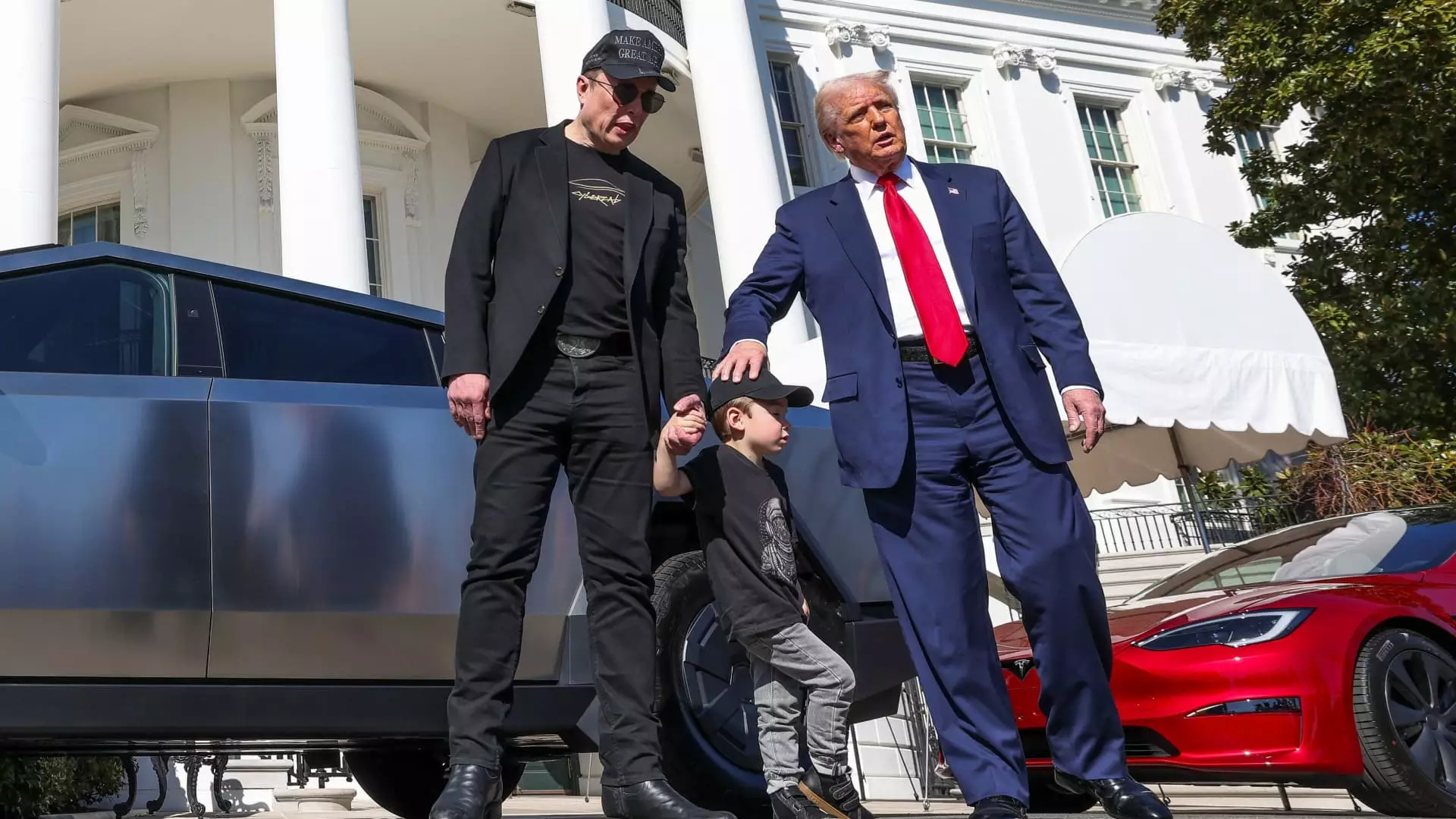Elon Musk’s recent statements highlight a compelling dichotomy within the automotive industry regarding tariffs. While he acknowledges the disruptive potential of high and unpredictable tariffs, he also emphasizes Tesla’s relative resilience compared to traditional automakers. This juxtaposition illustrates a broader challenge the industry faces as it navigates an increasingly complex global trade landscape. Tariffs can act as a double-edged sword; they can protect domestic industries but may also lead to price increases that ultimately burden consumers.
Musk’s position boils down to a pragmatic view: tariffs, when misapplied, can substantially affect companies, yet Tesla’s “localized supply chains” provide some insulation. However, declaring Tesla the “least-affected car company” raises questions about the sustainability of this advantage. If the global supply chain, particularly from countries like China, faces ongoing disruption due to economic tensions or policy shifts, even Tesla may not remain untouched in the long run.
The Economic Landscape: Tesla’s Earnings Report
Tesla’s first-quarter earnings reveal a grim reality, with a significant 20% drop in automotive revenue and a staggering 71% plunge in net income compared to last year. Such declines are a wake-up call, highlighting the fragility of market confidence in an environment where tariff-related uncertainty prevails. While Musk’s optimistic view focuses on Tesla’s adaptability, reality suggests that the company’s vulnerability to external factors is greater than he might admit. Comparing Tesla’s earnings with its reliance on imported materials reveals an unsettling contradiction: the very components that differentiate Tesla, such as cutting-edge technology and battery cells, are significantly impacted by tariffs.
With projections for future guidance now ambiguous, the rhetorical question arises: how will Tesla maintain its edge if it cannot secure favorable access to essential supplies? The challenge of managing raw material costs in an unpredictable tariff environment poses a considerable threat to Tesla’s profitability and operational efficiency.
The Musk-Trump Dynamic and its Implications
Further complicating this narrative is Musk’s relationship with President Trump, marked by an unusual mix of support and candid criticism. Musk’s blunt dismissal of Trump’s trade adviser Peter Navarro illustrates a level of discontent within the administration’s trade strategy. As much as Musk influences discussions around automotive tariffs, this friction raises intriguing questions about corporate influence on public policy. It underscores the reality that even the most powerful industrialists cannot fully predict how governmental decisions will affect their businesses.
Musk’s advocacy for “predictable tariff structures” demonstrates a desire for stability that is often absent in political discourse. For Musk, advocating for lower, more predictable tariffs extends beyond personal interests—it reflects a broader principle that could benefit the economy at large. His perspective indicates that while fostering domestic industry is crucial, it cannot come at the cost of innovation and competitiveness on a global scale.
Future Directions: Navigating Supply Chain Realities
As Tesla strives to augment its local manufacturing capabilities, the company faces inherent challenges. Musk’s recognition of Tesla’s dependence on foreign materials, particularly lithium iron phosphate battery cells sourced from China, highlights a pressing need for diversification. While plans are underway to enhance local production, the reality is that such transformations require time and substantial investment. In Musk’s own words, while Tesla has made strides such as establishing a lithium refinery in Texas, it remains far from complete self-sufficiency.
This opens the floor for discussion about globalization versus localization. While localizing supply chains can mitigate some tariff impacts, it is essential to strike a balance that allows for innovation without compromising responsiveness to market changes. Musk’s continued push for securing non-China based suppliers signals a strategic pivot that could enhance Tesla’s resilience, but the complexity of global supply chains means this won’t be an overnight fix.
Confronting Market Realities
Ultimately, Musk’s insights illuminate the precarious intersection of tariffs, economic performance, and global supply chains within the electric vehicle landscape. While the notion of tariffs can resonate with nationalism and protect local jobs, the potential to stifle innovation and create market distortions looms large. The automotive industry, especially in a transformational period led by companies like Tesla, must advocate for policies that foster both domestic strength and international competitiveness.
Elon Musk’s unabashedly candid assessments of tariffs and their implications challenge us to reconsider how we approach trade policy. As Tesla maneuvers through these turbulent waters, the broader automotive sector must also reckon with the evolving dynamics of global trade and its repercussions on future growth. The path forward remains fraught with uncertainty, underscoring the need for sustained dialogue, strategic foresight, and robust policy frameworks.


Leave a Reply